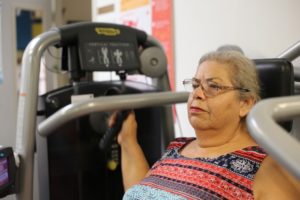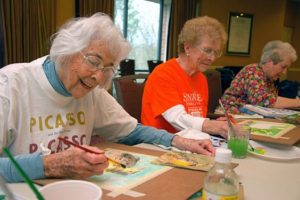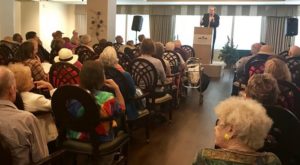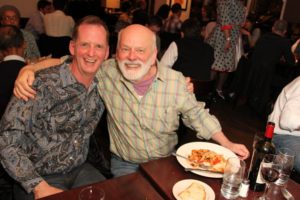
On May 30 from 10am – 12pm, the Ventura Family YMCA hosts Senior Health and Fitness Day in celebration of Older Americans Month. The event is free, open to the community and will take place in the outdoor sportsplex. A free lunch is provided.
Dr. Dial, former Director of the Family Practice Residency at the Ventura County Medical Center, will speak at the event about the importance of staying active throughout life. For more information on this event, contact Rejeana Mira at [email protected] or 642.2131 x16.
May is Older Americans Month and the Ventura Family YMCA is emphasizing the importance of being active and involved, no matter where you are in life. Ventura residents are encouraged to “Engage at Every Age,” developing behaviors that are crucial to healthy aging, including healthy eating, increasing physical activity and social interaction—especially those adults over 50.
Adults 50 years and older currently make up more than 30 percent of the U.S. population, and will soon represent 45 percent of all Americans. Here in Ventura, adults 50 and older make up at least 28 percent of the population. The Centers for Disease Control and Prevention (CDC) suggests that adults 50 and older have a 70 percent chance of developing at least one chronic disease. While these numbers seem daunting, the good news is that making small lifestyle changes that include increasing physical activity, eating healthier and staying active socially can help older adults live better.
“There is no age limit to what you can do to maintain your physical wellbeing. At the Y, there is a wide range of programs suited to fit your needs and goals. The Ventura YMCA is committed to supporting you on your journey no matter how big or small,” said Sherry Maresca, Health and Wellness Director, Ventura Family YMCA.
For 55 years, Older Americans Month (OAM) has been observed to recognize older Americans and their contributions to our communities. Led by the Administration for Community Living’s Administration on Aging, every May offers opportunity to hear from, support, and celebrate our nation’s elders.





